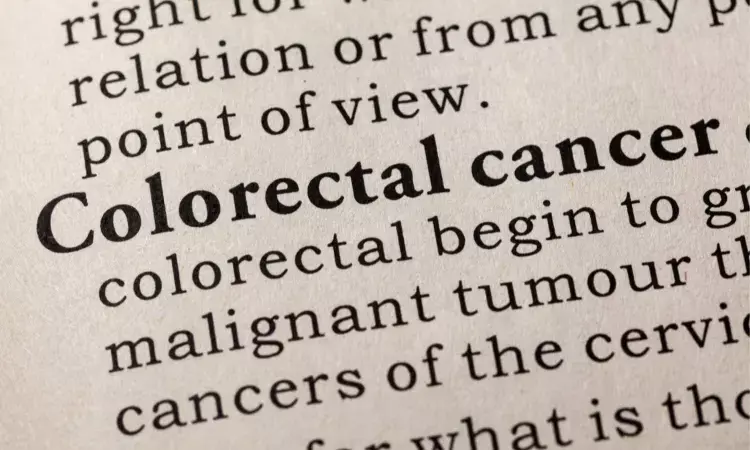- Home
- Medical news & Guidelines
- Anesthesiology
- Cardiology and CTVS
- Critical Care
- Dentistry
- Dermatology
- Diabetes and Endocrinology
- ENT
- Gastroenterology
- Medicine
- Nephrology
- Neurology
- Obstretics-Gynaecology
- Oncology
- Ophthalmology
- Orthopaedics
- Pediatrics-Neonatology
- Psychiatry
- Pulmonology
- Radiology
- Surgery
- Urology
- Laboratory Medicine
- Diet
- Nursing
- Paramedical
- Physiotherapy
- Health news
- Fact Check
- Bone Health Fact Check
- Brain Health Fact Check
- Cancer Related Fact Check
- Child Care Fact Check
- Dental and oral health fact check
- Diabetes and metabolic health fact check
- Diet and Nutrition Fact Check
- Eye and ENT Care Fact Check
- Fitness fact check
- Gut health fact check
- Heart health fact check
- Kidney health fact check
- Medical education fact check
- Men's health fact check
- Respiratory fact check
- Skin and hair care fact check
- Vaccine and Immunization fact check
- Women's health fact check
- AYUSH
- State News
- Andaman and Nicobar Islands
- Andhra Pradesh
- Arunachal Pradesh
- Assam
- Bihar
- Chandigarh
- Chattisgarh
- Dadra and Nagar Haveli
- Daman and Diu
- Delhi
- Goa
- Gujarat
- Haryana
- Himachal Pradesh
- Jammu & Kashmir
- Jharkhand
- Karnataka
- Kerala
- Ladakh
- Lakshadweep
- Madhya Pradesh
- Maharashtra
- Manipur
- Meghalaya
- Mizoram
- Nagaland
- Odisha
- Puducherry
- Punjab
- Rajasthan
- Sikkim
- Tamil Nadu
- Telangana
- Tripura
- Uttar Pradesh
- Uttrakhand
- West Bengal
- Medical Education
- Industry
Does diabetes affect survival of individuals with colorectal cancer?

Complications of diabetes can have numerous negative health effects, from impaired vision and nerve damage to kidney dysfunction and heart disease. In an analysis of information on adults with colorectal cancer, patients who also had diabetes-particularly those with diabetic complications-faced a higher risk of dying early. The results are published by Wiley online in CANCER, a peer-reviewed journal of the American Cancer Society.
For the study, Kuo‐Liong Chien, MD, PhD, of National Taiwan University, and his colleagues examined data registered between 2007 and 2015 in the Taiwan Cancer Registry Database, which is linked to health insurance and death records. Their analysis included 59,202 individuals with stage I–III colorectal cancer who underwent potentially curative surgery to remove their tumors. Among these patients, 9,448 experienced a cancer recurrence and 21,031 died from any cause during the study period.
Compared with individuals without diabetes, those with uncomplicated diabetes were at a minimally or insignificantly higher risk of all‐cause and cancer‐specific death, whereas those with complicated diabetes had 85% higher odds of death from any cause and 41% higher odds of death from cancer. These associations were more pronounced in women and in patients with early‐stage colorectal cancer.
Also, compared to patients without diabetes, patients with uncomplicated or complicated diabetes had a 10–11% higher risk of colorectal cancer recurrence.
The mechanisms behind the relationship between diabetic severity and poor colorectal cancer prognosis could involve various pathways and responses triggered by high insulin and glucose levels in the blood, as well as elevated inflammatory states, which are characteristic of type 2 diabetes.
“While a higher diabetes prevalence was noted in patients with colorectal cancer, the study suggests that coordinated medical care involving multiple specialists can help prevent diabetes complications, potentially improving long-term colorectal cancer oncological outcomes, particularly in women and patients with early-stage cancer,” said Dr. Chien.
Reference:
Hsin-Yin Hsu, Yih-Jong Chern, Min-Shu Hsu BS, Tzu-Lin Yeh, Ming-Chieh Tsai, Jing-Rong Jhuang BS, Lee-Ching Hwang, Chun-Ju Chiang, Wen-Chung Lee, Diabetic severity and oncological outcomes of colorectal cancer following curative resection: A population-based cohort study in Taiwan diabetes and colorectal cancer prognosis, https://doi.org/10.1002/cncr.34975.
Dr Kamal Kant Kohli-MBBS, DTCD- a chest specialist with more than 30 years of practice and a flair for writing clinical articles, Dr Kamal Kant Kohli joined Medical Dialogues as a Chief Editor of Medical News. Besides writing articles, as an editor, he proofreads and verifies all the medical content published on Medical Dialogues including those coming from journals, studies,medical conferences,guidelines etc. Email: drkohli@medicaldialogues.in. Contact no. 011-43720751


